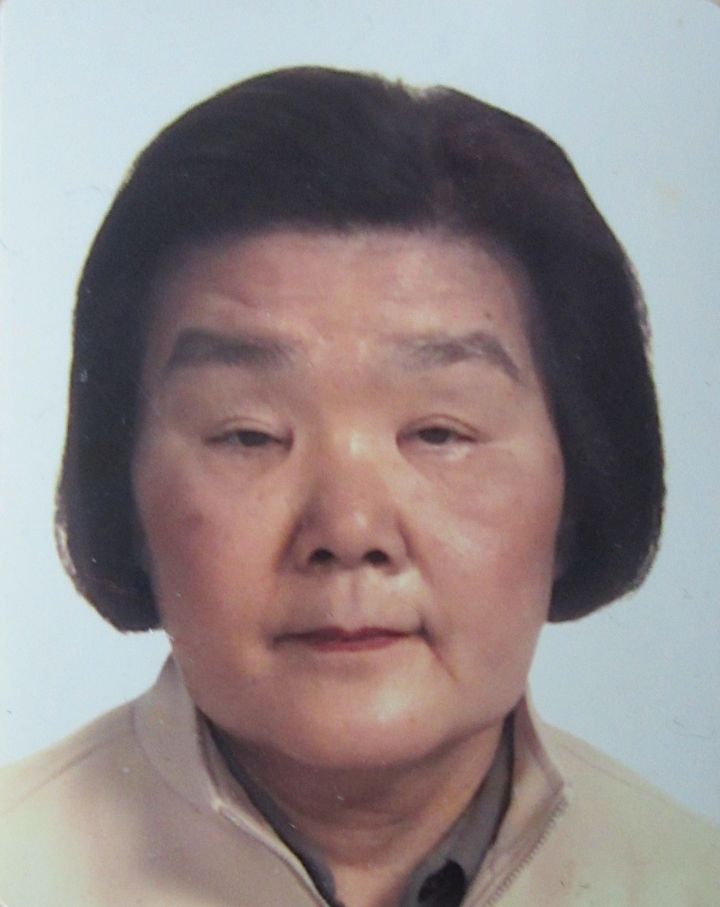1945
-
Facey, Erica
 Erica Facey
Erica Facey(6 Novenber 1945 – 21 July 2022)
Erica Facey was born on 6 November 1945 in Nishinomiya, a district in the city of Osaka, Japan. Her maiden name was Kitagawa Kikuko [Japanese: 北川喜久子]. She went to school in Osaka and proved to be a very able pupil. She wanted to go to university but at that time it was difficult for women to do so. She eventually went to the woman's University of the Sacred Heart, Tokyo, which had been set up in 1948. She graduated from there with a BA in English. She was unable to find a suitable position in Japan and decided to come to Britain and study Linguistics at the School of Oriental and African Studies (SOAS), London University, registering first for an MA then continuing to a PhD. She completed a dissertation titled “Structural Analysis of the Japanese Language Using Montague Grammar” and was awarded her PhD in 1981. Facey presented a number of papers at conferences on linguistics and had a teaching post at SOAS. However, she found academic life difficult, especially the need to search for funding and decided to take another path.
By this time she was married and had a young daughter, which took up a lot of her time. Erica Facey had always been interested in haiku, which she had studied in Japan. She decided to become active in the haiku world and promoting haiku in Britain as this could be easily fitted in with her other activities. She always wrote her haiku in Japanese only later translating them into English. The Japanese versions were published in the Japanese haiku magazine ‘Hototogisu’ (ホトトギス) and in various saijiki (haiku almanacs). Facey was sufficiently involved in the British haiku world to be an original member of The British Haiku Society in 1990. However, at that time, she found it very inward looking and not matching her aspirations.
Her feelings were that there was a real need to attract beginners, especially schoolchildren, and provide a platform for work related to haiku, even if not specifically haiku. Haiku should not just be for the specialist. To this end she set up the organisation ‘Time Haiku’ and while a number of people were involved the poet Gavin Ewart gave the necessary encouragement and the Waltham Forest Arts Council provided financial support. In 1997 through the Time Haiku Group she published a collection of her haiku in Japanese and English titled Flying.
Time Haiku magazine was then founded and the first edition published in 1995 with Erica Facey as the Editor. Although Doreen King and later Diana Webb took over the duties of editing Time Haiku, Facey remained involved in an administrative capacity until 2021, as newsletter editor and as author of short articles about Japanese kigo (season words) and poetic techniques. In 2004 she edited a selection of poems, Time Haiku Anthology. Erica Facey also published three books of haiku, which were composed in Japanese with English translations: Gliding (2001), Diving Grebe (2005), and Images (2015).
Erica Facey died in London on 21 July 2022.
We are very grateful to Erica’s husband Owen Facey for contributing to the Living Legacies feature with her biography.
Publications:
- Flying (Time Haiku Group, 1997)
- 滑翔 / Gliding (France-Do, Co., Ltd, Tokyo, 2001)
- 潜鳰 / Diving Grebe (France-Do, Co., Ltd, Tokyo, 2005)
- 心象 / Images (France-Do, Co., Ltd, Tokyo, 2015)
Selected works:
from Gliding (2001)The broken columns
holding the space between them:
the summer seaAt the waterside
reed shoots burst forth,
all else is withered.Striking stripes
half hidden in the stones:
a frozen butterflyThe robin came,
selected a withered leaf
and left the garden.from Diving Grebe (2005)
Her dress flowing
in the spring sunshine;
the headless statue.Seeing nothing
hearing the sound of flying away:
withered reed bed.Directly under
the swirling flock of seagulls
endless withered fields.At the spring market
asking a reduction on the
God of wealth and longevity.from Images (2015)
By every rain
the Autumn is deepened;
my life too.Showy daffodils
by the side of the road:
a traffic accident.Visible experience
yes but the hidden too,
winter cherriesWinter camellia:
it is simply
What it is.Sources:
- https://haikupedia.org/article-haikupedia/haiku-in-the-united-kingdom-england/
- https://haikupedia.org/article-haikupedia/erica-facey/
- https://thehaikufoundation.org/omeka/items/show/4124
- https://www.geraldengland.co.uk/revs/bs177.htm
- https://www.japansociety.org.uk/review?review=495
- https://www.japansociety.org.uk/review?review=704
- https://www.hsa-haiku.org/frogpond/FrogpondIndex.pdf
- Time Haiku, ed. Diana Webb, issue #57, 2023
